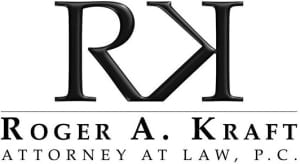Three Common Misunderstandings About Bankruptcy And Life Afterward
Many people who might benefit from filing bankruptcy suffer from misunderstandings about its effects on their debts, property and long-term finances.
Every year, thousands of people in Utah seek to discharge debt that they can no longer handle by filing bankruptcy. In 2016, the state recorded over 11,000 filings, including more than 6,800 Chapter 7 cases and 4,700 Chapter 13 cases. Sadly, due to common myths about bankruptcy, many people begin this process with incorrect expectations or fail to even consider bankruptcy as a solution. Moving beyond these misconceptions is a key first step for anyone who may benefit from filing bankruptcy.
1. Property Loss
One widespread erroneous belief is that filing bankruptcy will cause a person to lose the bulk of his or her property. In Chapter 7 bankruptcy, the liquidation of some assets may be required. However, Utah law allows consumers to claim certain property as exempt from this process. Furthermore, in both Chapter 7 and Chapter 13 bankruptcy, a persons with a secured asset can usually keep that asset by signing a reaffirmation agreement in chapter 7 or paying for the asset through the chapter 13 plan.
2. Debt Discharge
Another common assumption regarding bankruptcy is that all debts are cleared away at the end of the process. In reality, certain debts, such as child support, criminal restitution and student loans, typically do not qualify for forgiveness. Furthermore, in Chapter 13 bankruptcy, the discharge of eligible debts is contingent on a person completing an approved debt repayment plan over a period of three to five years.
3. Financial Impacts
Many people believe that filing bankruptcy will ruin their credit score and impede them from getting credit in the future. A bankruptcy filing does remain on a credit report for up to 10 years, but consumers should also keep the following facts in mind:
· Filing bankruptcy may help a person’s credit score improve sooner, as it can eliminate debts that could otherwise harm the score for years to come.
· It is possible to begin rebuilding credit shortly after bankruptcy by using a secured card, which is backed by collateral and available even to people with poor credit.
· People who have filed bankruptcy may be able to apply for mortgages within two to four years, depending on the type of case that they filed.
Many people also have concerns that a bankruptcy filing will negatively affect their career or employment prospects. However, employers are prohibited from firing or discriminating against a current employee on this basis. In addition, governmental entities cannot factor a bankruptcy filing into their hiring decisions. In most cases, an employer will never even be notified of the bankruptcy filing.
Dispelling The Myths
As these myths show, misunderstandings about the bankruptcy process and its long-term effects are common among consumers. As a result, anyone who is looking into their options for resolving debt should consider consulting with a bankruptcy attorney before making any binding decisions. An attorney might be able to help a person fully understand what to expect from the process and make a more informed choice.


